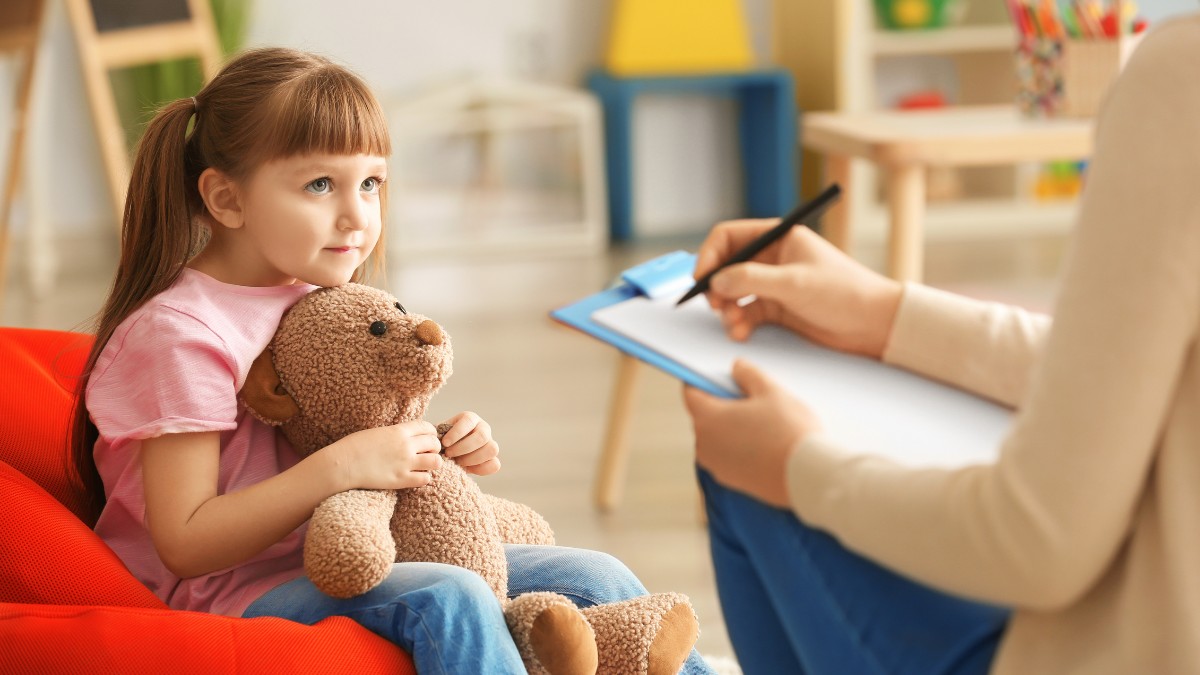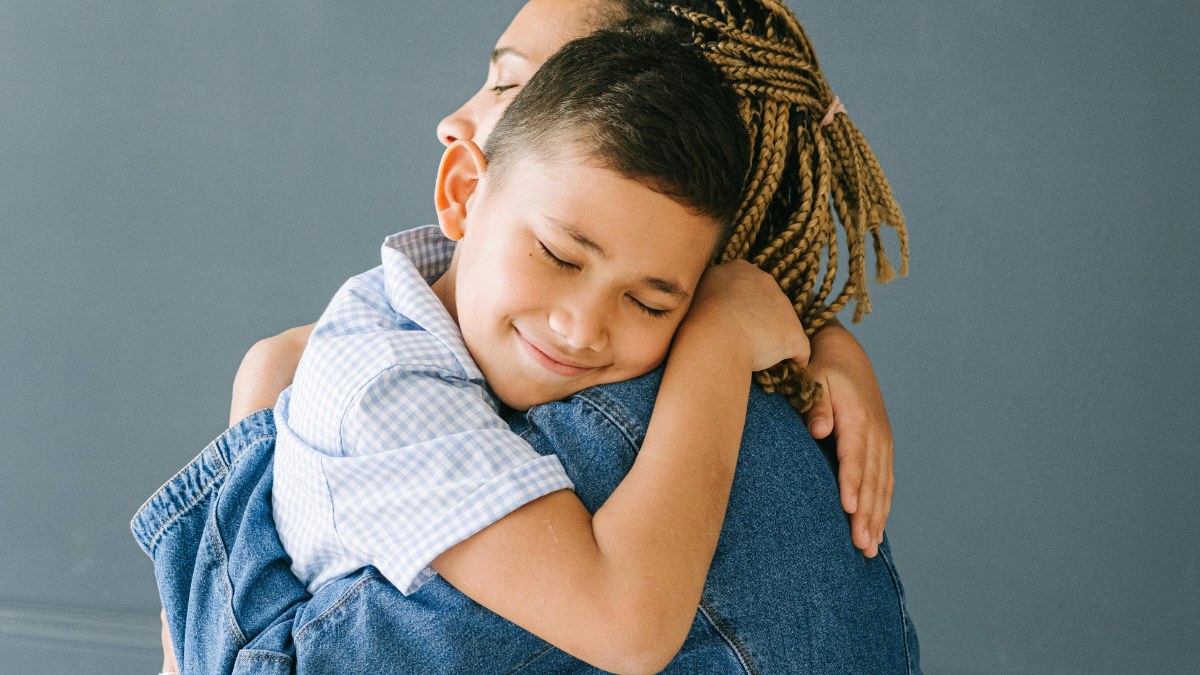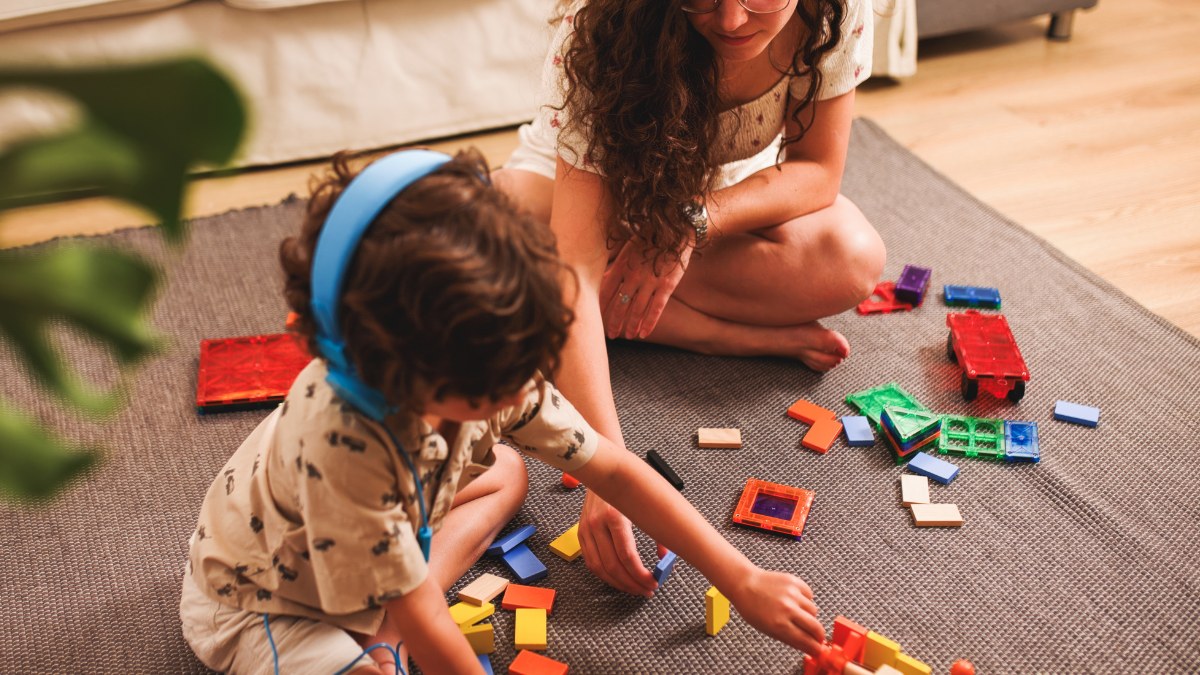Sibling Perspective on Autism: Important Point of View
When a child is diagnosed with autism, the focus is often on that child and how to best support them. But what about the siblings of children with autism?
.jpg)
Sibling Perspective on Autism: Important Point of View
Understanding Autism from a Sibling's Perspective
When it comes to understanding autism, the perspective of siblings plays a crucial role in the journey.
Siblings of individuals with autism have a unique vantage point that can provide valuable insights into the experiences and challenges faced by their brother or sister. In this section, we will delve into the role of siblings in the autism journey and explore how their perspectives can shed light on the condition.

The Role of Siblings in the Autism Journey
Siblings play a significant role in the lives of individuals with autism. They often serve as allies, advocates, and companions throughout their brother or sister's development. Siblings can offer emotional support, participate in therapy sessions, and contribute to the overall well-being of their sibling with autism.
Moreover, siblings are frequently exposed to the day-to-day realities of living with autism. They witness firsthand the unique behaviors, communication difficulties, and sensory sensitivities that their sibling experiences. This exposure allows siblings to develop a deep understanding of autism and its impact on their family dynamics.

How Siblings' Perspectives Can Provide Insights?
Siblings' perspectives on autism provide a valuable window into the experiences of individuals with autism. Their observations and interactions offer insights that may not be readily apparent to parents or caregivers. Siblings often develop a keen awareness of their sibling's strengths, challenges, and unique abilities.
Through their close relationship, siblings can offer valuable information to parents and professionals working with individuals on the autism spectrum. Their input can contribute to the development of personalized strategies and interventions that support their sibling's growth and development.
Insights from Siblings' Perspectives
- Siblings can share information about their sibling's communication preferences, sensory triggers, and specific areas of interest.
- Siblings can provide insights into their sibling's social interactions, helping to identify areas where additional support may be beneficial.
- Siblings can offer valuable feedback on the effectiveness of various interventions and therapies, providing a holistic view of their sibling's progress.
By recognizing and valuing the perspectives of siblings, parents and caregivers can gain a deeper understanding of autism and enhance the support they provide to individuals on the spectrum. Siblings' unique insights contribute to a more comprehensive and nuanced understanding of autism, leading to improved outcomes and a stronger sense of unity within the family.
Challenges and Rewards
Living with a sibling who has autism can bring both unique challenges and rewards to the lives of siblings. Understanding these experiences is crucial for parents seeking to support the well-being of all their children.
In this section, we will explore the challenges faced by siblings of individuals with autism, as well as the unique rewards and positive experiences they may encounter.
Challenges Faced by Siblings of Individuals with Autism
Siblings of individuals with autism often face various challenges throughout their lives. These challenges can arise from the impact of autism on family dynamics, social interactions, and personal experiences. Here are some common challenges that siblings may encounter:
Challenges Faced by Siblings
- Feeling a sense of responsibility for their sibling with autism
- Dealing with changes in family routines and dynamics
- Experiencing feelings of jealousy or resentment due to the attention and support given to their sibling
- Struggling with social interactions and friendships due to the unique needs of their sibling
- Coping with the emotional and behavioral challenges exhibited by their sibling
- Balancing their own needs and desires with the demands of their sibling's care
It's important for parents to be aware of these challenges and provide support and resources to help siblings navigate these complex situations.
Unique Rewards and Positive Experiences
While siblings of individuals with autism face challenges, they also experience unique rewards and positive experiences that can shape their lives in profound ways. These experiences can foster personal growth, resilience, and empathy. Here are some of the unique rewards and positive aspects siblings may encounter:
Unique Rewards and Positive Experiences
- Developing a deep sense of compassion and understanding
- Learning to appreciate and celebrate differences
- Gaining a broader perspective on diversity and inclusion
- Building resilience and adaptability
- Developing strong problem-solving and advocacy skills
- Forming an unbreakable bond with their sibling
Siblings of individuals with autism often grow up with a heightened sense of empathy and a deep understanding of the value of acceptance and inclusion. These qualities can positively impact their relationships, career paths, and overall outlook on life.
By acknowledging and addressing the challenges faced by siblings of individuals with autism while recognizing the unique rewards and positive experiences they encounter, parents can create an environment that supports the well-being and growth of all their children.
Building Strong Sibling Relationships
When it comes to navigating the challenges and joys of having a sibling with autism, building strong sibling relationships is essential. Siblings play a vital role in the autism journey, and fostering supportive bonds can have a positive impact on both the individual with autism and their sibling.
Supporting Sibling Bonds
Supporting sibling bonds involves creating an environment that encourages open communication, understanding, and shared experiences. Here are a few ways to support and strengthen the sibling relationship:
- Quality Time Together: Carving out dedicated time to spend together can help siblings build a deeper connection. Engage in activities that both siblings enjoy, such as playing games, going for walks, or pursuing shared hobbies.
- Encouraging Sibling Involvement: Involve siblings in the autism journey by sharing information about autism and the unique needs of their sibling. This can help them develop empathy and understanding, and it allows them to actively participate in supporting their sibling's growth and development.
- Creating a Safe Space for Expression: Siblings may have their own feelings and concerns about their sibling with autism. It's important to provide a safe and non-judgmental space for them to express their emotions. Encourage open conversations and actively listen to their perspectives.
Encouraging Empathy and Understanding
Empathy and understanding are vital components of building strong sibling relationships in the context of autism. By fostering these qualities, siblings can develop a deeper connection and support each other effectively. Here are a few strategies to encourage empathy and understanding:
- Education and Awareness: Providing siblings with age-appropriate information about autism can help them better understand their sibling's experiences and challenges. Books, videos, and online resources can be valuable tools for increasing awareness and promoting empathy.
- Promoting Communication Skills: Encourage siblings to communicate openly and honestly with each other. This can be facilitated through active listening, validating their feelings, and providing opportunities for them to ask questions and share their own experiences.
- Building Empathy through Shared Experiences: Encourage siblings to engage in activities that promote empathy and understanding. This can include participating in autism-related events, volunteering together, or joining support groups where they can interact with other siblings facing similar experiences.
By actively supporting sibling bonds and nurturing empathy and understanding, siblings can form a strong foundation of love and support. These relationships not only benefit the sibling with autism but also contribute to the overall well-being and personal growth of both siblings.
The Impact on Personal Growth
Having a sibling with autism can have a profound impact on personal growth, shaping the perspectives and opportunities of siblings in unique ways. This section explores two key aspects of personal growth: developing resilience and compassion, as well as shaping future perspectives and opportunities.
Developing Resilience and Compassion
Growing up with a sibling on the autism spectrum often requires siblings to navigate challenges and uncertainties. This journey can foster the development of resilience, as siblings learn to adapt to changing circumstances, manage expectations, and find strength in difficult situations.
Siblings of individuals with autism frequently display remarkable resilience, as they learn to handle unexpected behaviors, communication difficulties, and social challenges. They develop a deeper understanding of patience, flexibility, and problem-solving skills, which can be valuable assets throughout their lives.
Moreover, having a sibling with autism nurtures compassion and empathy within siblings. Witnessing the unique experiences and struggles of their sibling fosters a heightened sense of understanding and empathy towards others, including individuals with disabilities.
This compassion extends beyond the immediate family, positively impacting relationships with friends, classmates, and the wider community.
Shaping Future Perspectives and Opportunities
The experiences and insights gained from growing up with a sibling with autism can shape the future perspectives and opportunities of siblings. Siblings often develop a broader perspective on diversity, inclusion, and the importance of advocating for those with different abilities.
Many siblings choose career paths that are directly influenced by their experiences with their sibling. They may pursue fields such as special education, psychology, therapy, or advocacy, driven by a desire to make a positive impact in the lives of individuals with autism and their families.
Additionally, siblings of individuals with autism often develop a strong sense of social responsibility and a commitment to promoting acceptance and understanding. They may actively engage in community initiatives, participate in autism awareness campaigns, or contribute to organizations that support individuals with autism and their families.
By embracing their unique experiences as siblings of individuals with autism, individuals can shape their own personal growth and future opportunities. The resilience, compassion, and expanded perspectives gained from these experiences can have a lasting impact on their lives and the lives of others.
It is important to recognize and support the personal growth of siblings of individuals with autism, providing them with the resources and opportunities they need to thrive.
Supporting Siblings' Well-being
When it comes to the well-being of siblings of individuals with autism, it is essential to address their unique needs and provide the necessary support. Siblings of individuals with autism often face a range of challenges and emotions, requiring specific attention and resources to ensure their well-being.
Addressing Sibling Needs
Supporting the well-being of siblings involves recognizing and addressing their individual needs. Siblings may experience a wide range of emotions, including frustration, guilt, and sadness, as they navigate the complexities of living with a sibling with autism.
It is crucial for parents and caregivers to create a safe and open environment where siblings feel comfortable expressing their feelings and concerns.
In addition to emotional support, siblings may also have practical needs that should be addressed. These can include additional time and attention from parents, access to information and resources about autism, and opportunities for respite or breaks from caregiving responsibilities. By acknowledging and addressing these needs, parents can help promote the overall well-being of their children.
Seeking Support and Resources
Parents of individuals with autism should actively seek support and resources to assist siblings in understanding and coping with their experiences.
There are various organizations, support groups, and online communities specifically designed for siblings of individuals with autism. These resources can provide valuable information, guidance, and a sense of belonging for siblings.
Additionally, therapy or counseling sessions can offer a safe space for siblings to express their emotions, gain coping strategies, and develop a better understanding of autism. Professional support can be beneficial for both the individual sibling and the overall family dynamics.
By seeking support and utilizing available resources, parents can help siblings navigate the challenges they may encounter, while also fostering their personal growth and well-being. It is important to remember that the needs of siblings may change over time, and ongoing support and access to resources should be provided throughout their journey.
Lessons Learned and Words of Wisdom
Through their experiences, siblings of individuals with autism have gained valuable insights and wisdom that can benefit others in similar situations. Here are some lessons learned and words of wisdom shared by these siblings:
- Patience and understanding are key in fostering a strong sibling bond.
- Embrace and celebrate the unique qualities and strengths of individuals with autism.
- Advocate for inclusivity and support for individuals with autism within your community.
- Seek out support networks and resources to navigate the challenges that may arise.
- Practice self-care and prioritize your own well-being while supporting your sibling with autism.
- Educate yourself and others about autism to promote acceptance and understanding.
The stories and wisdom shared by these siblings highlight the profound impact that having a sibling with autism can have on personal growth, empathy, and compassion.
Their experiences serve as a reminder that through love, understanding, and support, siblings can play a significant role in the lives of individuals with autism, fostering a sense of belonging, acceptance, and shared experiences.
Conclusion
Having a sibling with autism can be challenging, but it can also be a rewarding and enriching experience. By learning more about autism, being patient and understanding, advocating for your sibling, and encouraging their strengths and interests, you can build a strong and positive relationship with your brother or sister, and help them thrive.
Remember to take care of yourself, and seek support when you need it. With love and support, you and your sibling can navigate the challenges of autism together.




%20(1).jpg)

%20(1).jpg)





%20(1).jpg)
.jpg)
.jpg)